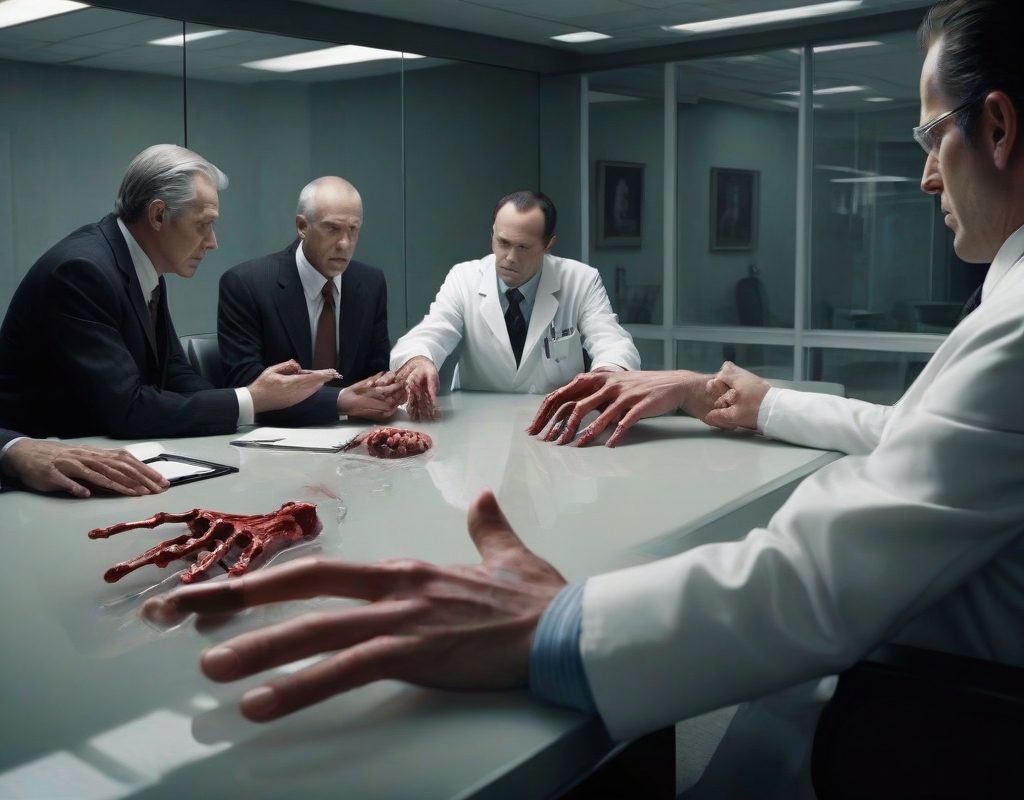Michael Moore, a prominent documentary filmmaker, has long been a vocal proponent of uncovering the systemic flaws plaguing the American healthcare system. His critical work, particularly the revealing documentary “Sicko,” exposes the breakdowns and inequalities that put physical and financial health at risk for countless Americans. Through poignant narratives and stark illustrations, Moore’s films delve deep into the crux of a healthcare system riddled with inefficiencies and moral fallacies.
“Sicko” is particularly compelling as it recounts harrowing tales of individuals devastated by inadequate healthcare. One striking account describes a man forced to choose which of his severed fingers he could afford to reattach, a decision dictated solely by the exorbitant costs of medical procedures. Such instances are far from isolated, depicting a widespread, systemic crisis where human lives are frequently sacrificed for profitability.
Further stretching the discourse, Moore explores the omnipresent corporate greed in healthcare. His critique extends to the operational frameworks of insurance and pharmaceutical companies, known for prioritizing profits over patient care. This scrutiny is echoed by public discontent and distrust, which have fostered a fertile ground for reform initiatives.
In “Sicko,” Moore uses satire effectively to challenge and contrast the deficiencies in the American system by comparing it with healthcare in Cuba. Despite its economic challenges, Cuba maintains a commitment to universal healthcare, highlighting the stark disparities with the U.S. approach. Moore’s journey with 9/11 first responders to Cuba serves not only as a critique but as a poignant reminder of the unfulfilled promise of health care for all in one of the world’s wealthiest nations.
The recent murder of Brian Thompson, the CEO of UnitedHealthcare, has thrust these healthcare debates back into the limelight. Thompson was fatally shot during a New York City investors meeting, a dramatic and violent act that appeared to be propelled by rage against perceived healthcare injustices. Notes left by the assailant featured words like “delay,” “deny,” and “depose,” hinting at a desperate protest against the manipulative practices endemic within the insurance industry.
This tragedy may be interpreted as a severe and twisted cry for justice, rooted in the perpetrator’s extreme reaction to the healthcare system’s failures. It starkly symbolizes the deep-seated frustration and despair that pervade many Americans’ experiences with the health system—issues of accessibility, affordability, and fairness that have driven some to the brink of catastrophic decisions.
Moore’s advocacy for a shift towards universal healthcare reflects a broader mandate supported by various healthcare experts and commentators. Many advocate for a model where medical services are a fundamental right, suggesting that such a transformation could lead to improved public health metrics and cost efficiencies. Analysis from global health organizations and comparative international health studies provide robust evidence supporting this shift, arguing that such a model could radically improve access and outcomes while curtailing national expenditures.
In light of these persistent issues and the shocking act of violence against Thompson, there is a pressing need for sweeping healthcare reforms. Commentary from across the medical and policy spectrum underscores the urgency for systemic change to forestall future tragedies and rectify the injustices of the current system. These sentiments are fortified by emerging grassroots activism and public advocacy pushing for substantial legislative and structural reforms.
As movements gain momentum and public outcry grows louder, the demand for a healthcare system grounded in justice, accessibility, and equality becomes more pronounced. This aligns strongly with Moore’s continuing call for reform—a transformation that moves beyond mere critique to actionable changes that ensure healthcare equity.
The murder of a high-profile healthcare CEO underscores an urgent and gruesome marker of widespread discontent with the American healthcare system. It serves as a grim reminder of the stakes involved in the fight for healthcare reform. Michael Moore’s portrayals, though sometimes controversial, have undeniably played a pivotal role in amplifying the conversation about the critical need for health system overhaul in the United States.
In conclusion, as stakeholders consider the path forward, the collective challenge remains to dismantle the barriers of cost, bureaucracy, and inequality still pervading the U.S. healthcare landscape. It is imperative to build a system that is truly inclusive, ensuring that healthcare is not a privilege for a few but a guaranteed right for all. The path towards this goal involves concerted effort and unwavering commitment to restructure how healthcare is perceived and delivered in America, paving the way for a future where the system reflects the principles of fairness and comprehensive care.




